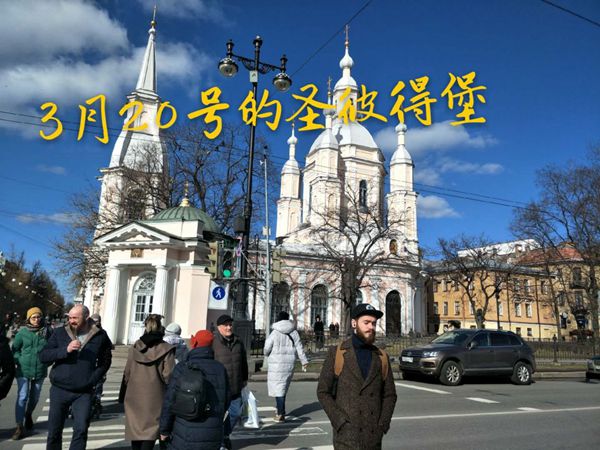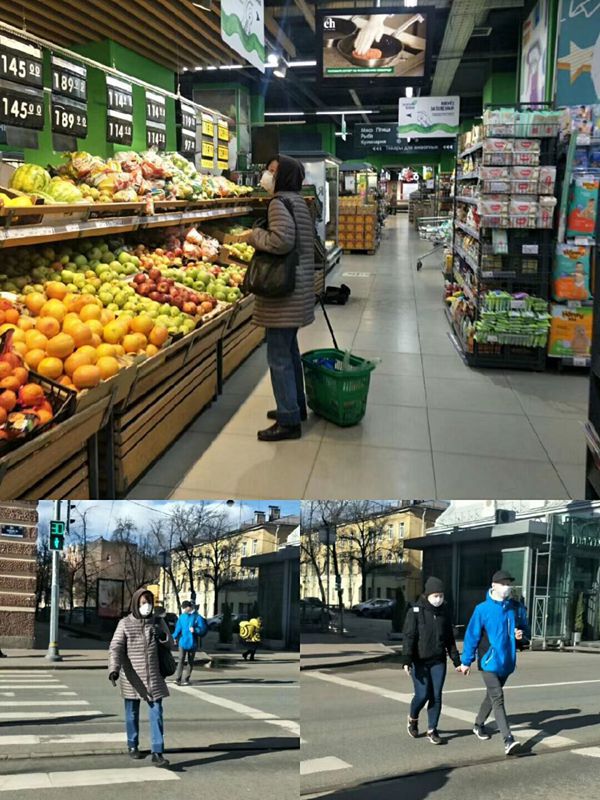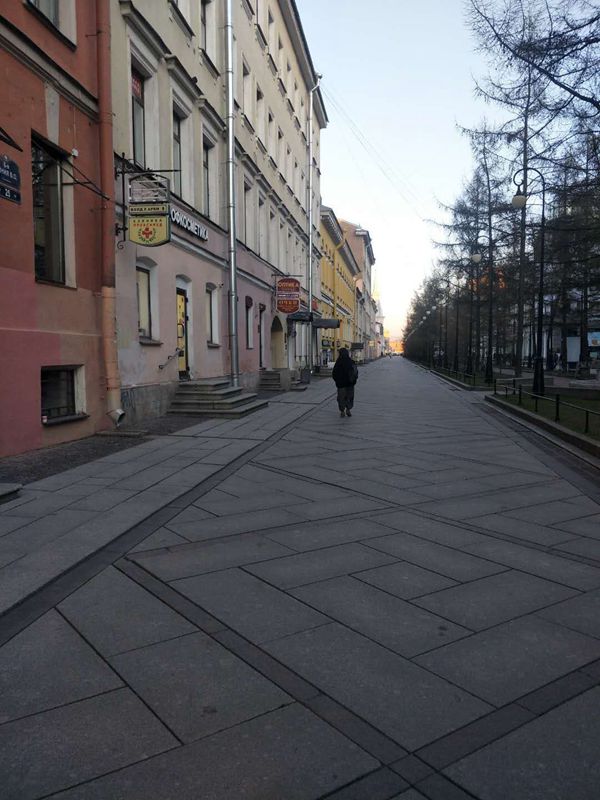Coping with COVID-19 in Russia: 'I felt the warmth of my homeland'
- By Wang Yiming
 0 Comment(s)
0 Comment(s) Print
Print E-mail China.org.cn, April 23, 2020
E-mail China.org.cn, April 23, 2020

Qi Haowen is one of 8,000 Chinese students currently stranded in St. Petersburg, Russia, after travelling there in late August last year to learn Russian. "At the moment, neither my roommate or I dare go out – not even to the supermarket. Wearing masks is no longer regarded as alien here," Qi explained.
Before mid-March, Russia looked to have dodged a bullet. As COVID-19 raged in other countries, Russia's reported new confirmed infections remained in double figures. However, since March 25 when 163 new cases were confirmed, this number has risen fast: as of April 20, the total number of cases nationwide has reached over 47,100.
"From February to early March, life in Russia was unaffected. A few Chinese people were persuaded by family members to wear masks, but they'd often remove them furtively if locals gave them a strange glance. It's ridiculous to think that at that time, I always took my mask off in crowded places, and then put it back on when there were fewer people around."

After arriving in St. Petersburg last year, Qi took up a part-time job selling amber via livestream on Taobao platform. She recalled: "I used to livestream from a small room. Due to the pandemic, the amber shop had no Chinese tourists and business had dipped, so they asked us to do it in the shop. When sales rose because of my livestreaming, the Russian sales clerk kept saying 'хорошо' ('great') to me."
"I remember one day in mid-March, a sign was posted on campus saying that entry without a mask was prohibited. All colleges and universities then suspended classes and my courses were moved online."
"The staff who livestream in the amber shop asked for leave because they didn't want to venture out to work. That's when the livestreaming was forced to stop."
To cope with the rising tide of infections, the Russian government ordered all non-essential workplaces to close from March 28 to April 5, declaring that "the safest thing is to be at home now."

"Drugstores and restaurants were all closed, and we could only go to the supermarket to buy food or else order takeaways. On the streets it was mostly deliverymen in their bright yellow uniforms," Qi recalled. Paid leave in the country, which was originally scheduled to last a week, was later extended until the end of the month.
"Gradually, I began to see Russians wearing masks," Qi noted. "At present, the shops have enough of everything people need. There are two large supermarkets within one kilometer of my home, which haven't run out of stock, and I usually go out to buy essentials once a week."
The items that Qi most urgently needs are still protective equipment.
In early February, she purchased 3,000 N95 masks in Moscow and mailed them back to China. "At the beginning of March, I thought Russia had curbed the spread of the coronavirus, and so I just kept 20 masks. I really regret it now," she explained.
Luckily, the Chinese Consulate General has distributed face masks, gloves, disinfectant and other protective gear in three batches since March 27 to ensure that every Chinese citizen in the consular district receives at least 20 masks, according to Wang Wenli, the Chinese consul general in St. Petersburg.
Qi said: "A week ago, the Chinese Student Association of St. Petersburg informed me that I could go and pick up 20 masks. The donated materials from China had finally arrived. I could feel the warmth of my homeland! "

Apart from the distributed masks, Qi also mentioned the WeChat groups set up by St. Petersburg's Chinese Association.
"The association has been posting the latest news about the pandemic situation in Russia and relevant regulations on its official WeChat account and in our WeChat groups," Qi said. "In a special WeChat group for medical services, they listed the telephone numbers of those on duty everyday who can help us contact the hospital in an emergency. There's also a Chinese medical physician offering free consultations."
According to Zhao Xiaoru, head of the Association's publicity department, they have been cooperating with the Chinese embassy and consulate to increase awareness amongst Chinese in Russia about how to stay safe, and making sure that they strictly comply with the local pandemic prevention measures.
"The Russian government has successively issued many pandemic prevention policies in order to keep people at home."
"In addition to our WeChat official account – where we publish news and information about related laws and regulations – we've also established online chat groups to help overseas Chinese in St. Petersburg solve practical problems. Whenever people have questions concerning visas, flight changes between China and Russia, or medical issues, we'll discuss them in the group and help find a solution."
"We want to help our fellow Chinese during this special period and we hope the pandemic will end soon," Zhao added.






Go to Forum >>0 Comment(s)